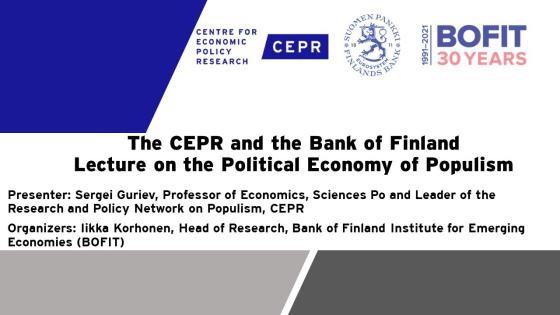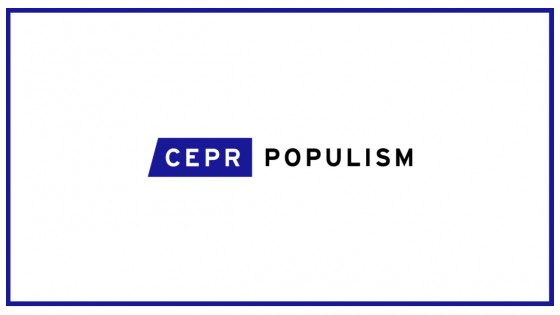

Search the site

The Populism RPN was established in March 2019. The network has been merged in October 2022 with the CEPR Political Economy Programme (POE), with which the RPN has cooperated closely, in particular in organising the joint POLECON Webinar Series in 2020-2022 and a joint Symposium in June 2022 in Stockholm.
Depending on the definition, in the last ten years the European populists’ vote share in general elections increased by about 10-15 percentage points. Today, the number of large countries with populists in government is higher than ever in history.
There are two reasons to be concerned about the populists’ popularity. One is that their promises are not macroeconomically sustainable (as in Latin America in the past or in Turkey today). Most populists, however, have learned this lesson and once in power, recognise the macroeconomic constraints. The second reason is much more important - modern populists promise and, once in power, implement policies that (i) destroy economic and political checks and balances and (ii) create barriers for economic and political competition.
The evidence-based policy advice on why the recent rise of populism took place and how to counter it is still quite scarce. The main objective of this RPN was to bridge the gap between research and specific practical solutions.
In addition, the RPN maintained the VoxEU Populism page as a forum for the wider debate.
The Populism RPN hosted several events, including a joint Symposium with the POE Programme.
The RPN also co-organised the monthly POLECON Webinar Series with the POE Programme and the Preventing Conflict: Policies for Peace RPN.
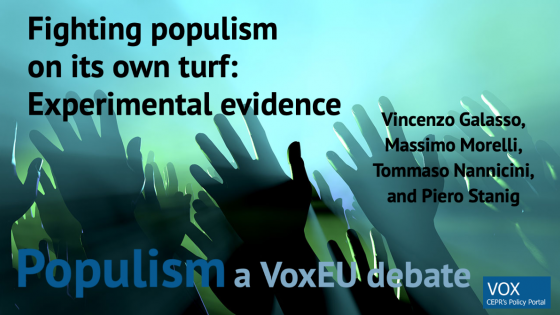
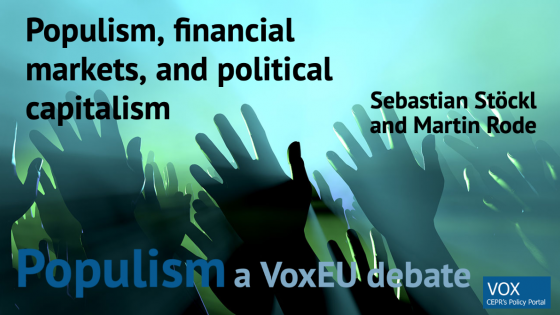
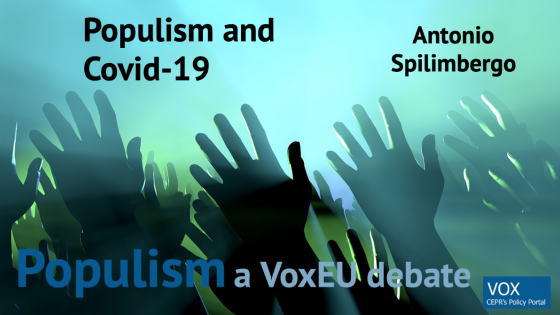





Sergei Guriev looks at whether mobile broadband internet is a liberation or disinformation technology.



